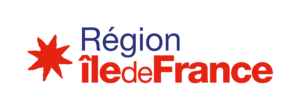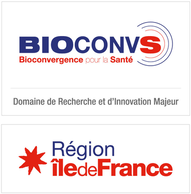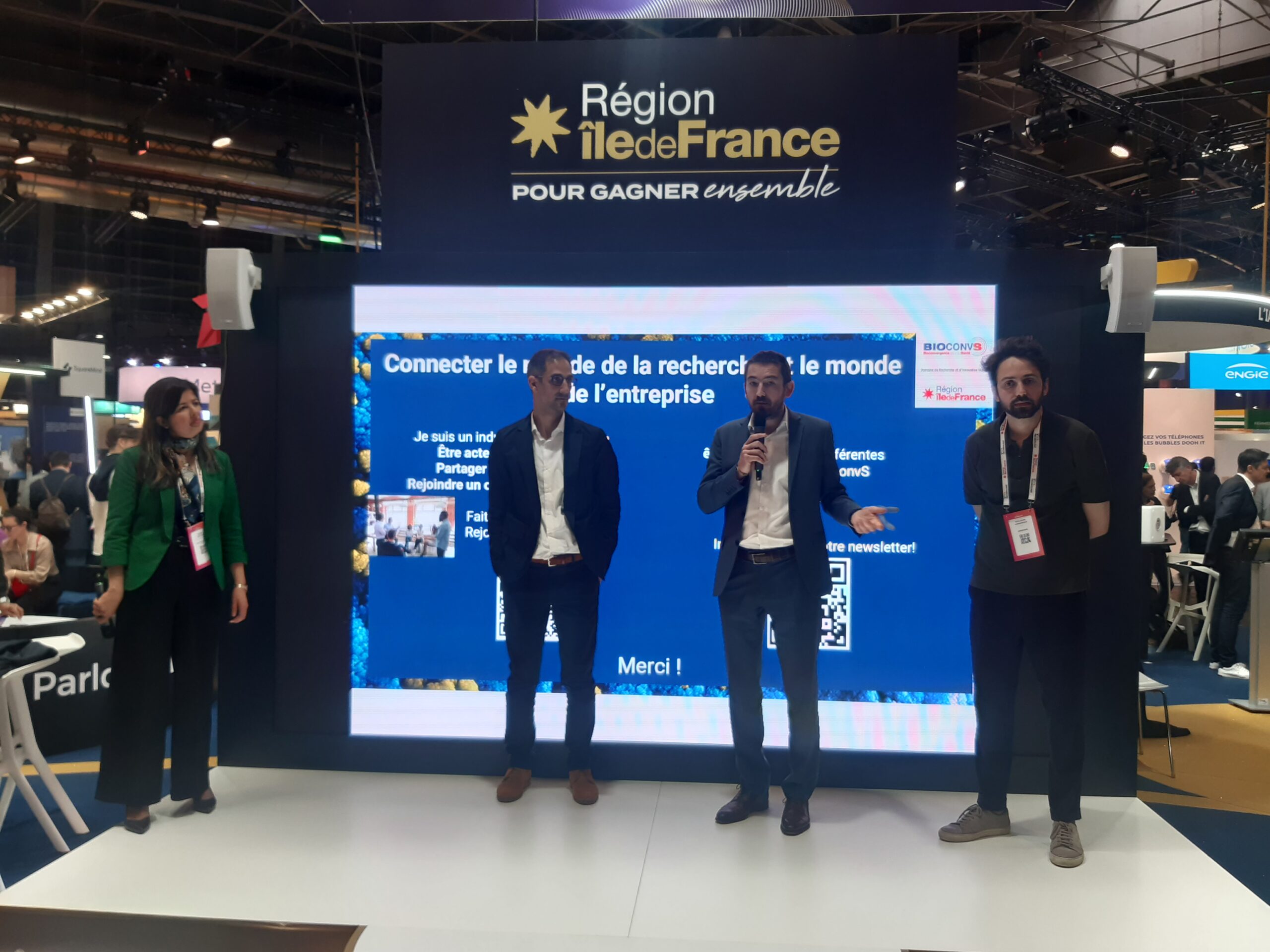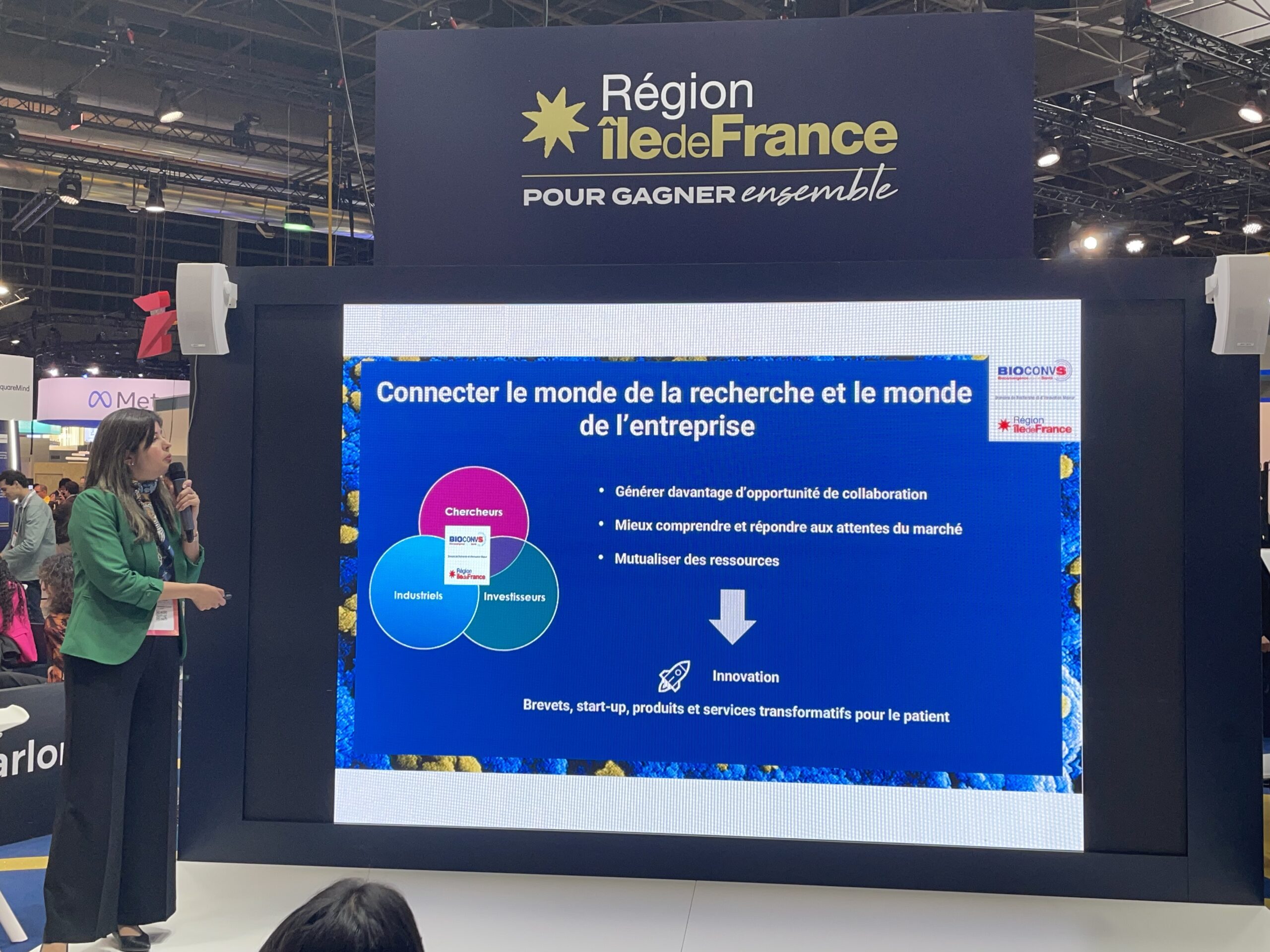BioConvS at VivaTech 2024
The largest European innovation event dedicated to start-ups and tech took place last week, from May 22 to 25, at Paris Expo, Porte de Versailles. VivaTech aims to be a generalist event, highlighting new technologies in various fields, including health, spread throughout the exhibition.
Although there was no pavilion exclusively dedicated to HealthTech or Deeptech health, the sector was nonetheless well represented. Several institutional and industrial players, such as Bpifrance, Sanofi, CNRS, EIC, INPI, and health start-ups supported by the Île-de-France Region, actively participated.
As part of VivaTech, the DIM BioConvS was delighted to present its initiatives and showcase four startups from its network. These young companies had the opportunity to demonstrate their innovations and meet potential investors and partners, thereby enhancing their visibility and impact in the health sector.
VivaTech once again proved its crucial role in promoting innovation and creating synergies between different players in tech and health. The event highlighted the technological advances shaping the future and supported start-ups in their development.
WhiteLab Genomics, represented by Timothé Cynober, showcased the value of its artificial intelligence platform. This platform enables the sorting and associating of large biological datasets. “Genomic therapies have two main components: the therapeutic genetic sequence and the delivery vehicle – a protein, for example – that brings the new gene into the cell for treatment. The platform simulates the combination of all these components to more quickly find those that are compatible.
The interest in this AI platform was highlighted, and it is already attracting the attention of several pharmaceutical companies (including Sanofi, which was present at VivaTech). It helps to de-risk and reduce the failure rate of medical research. The development of a drug can take 15 years and cost 2 billion euros; thus, this technology can significantly reduce both the development time and the cost of the drug.
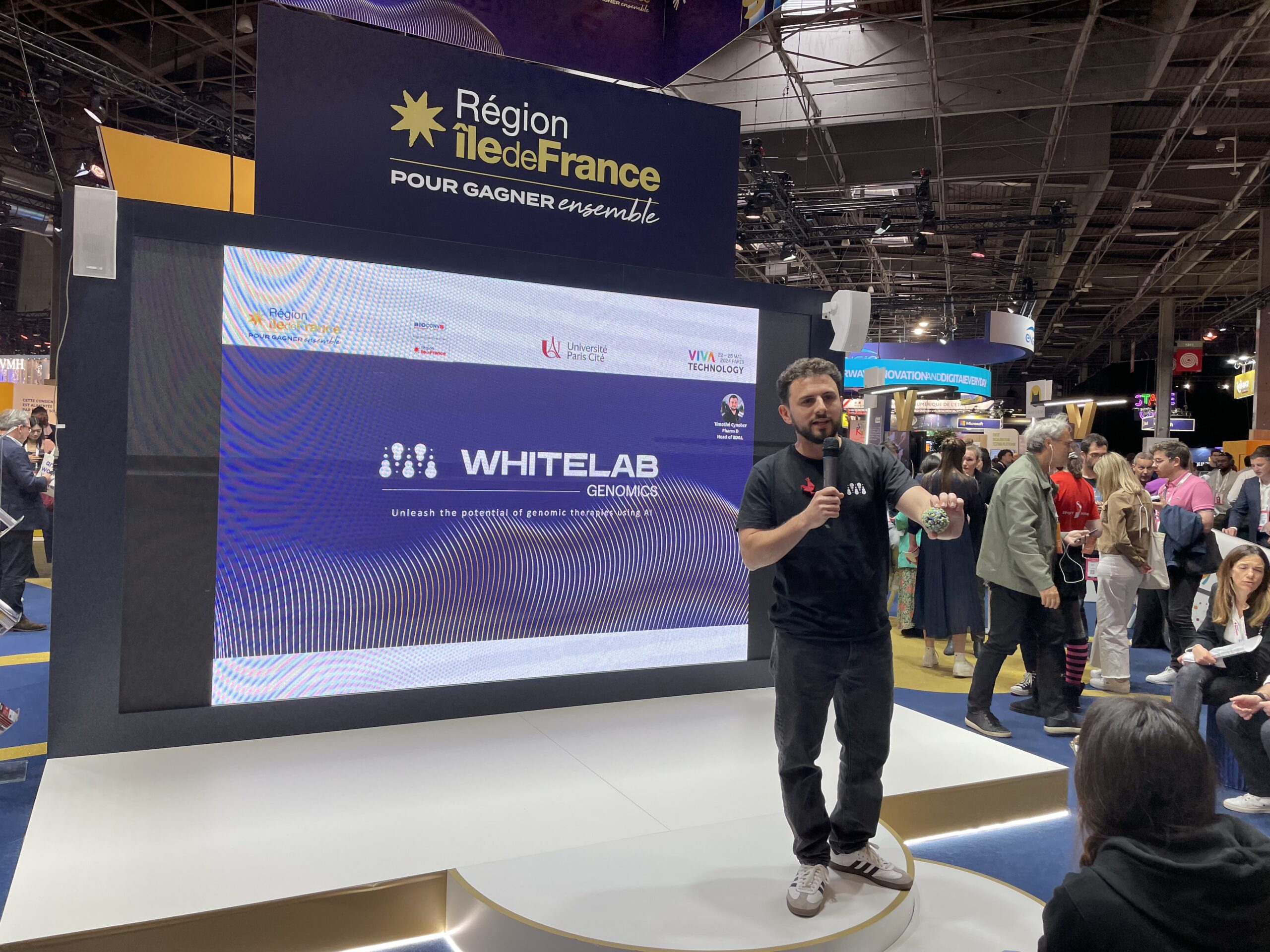
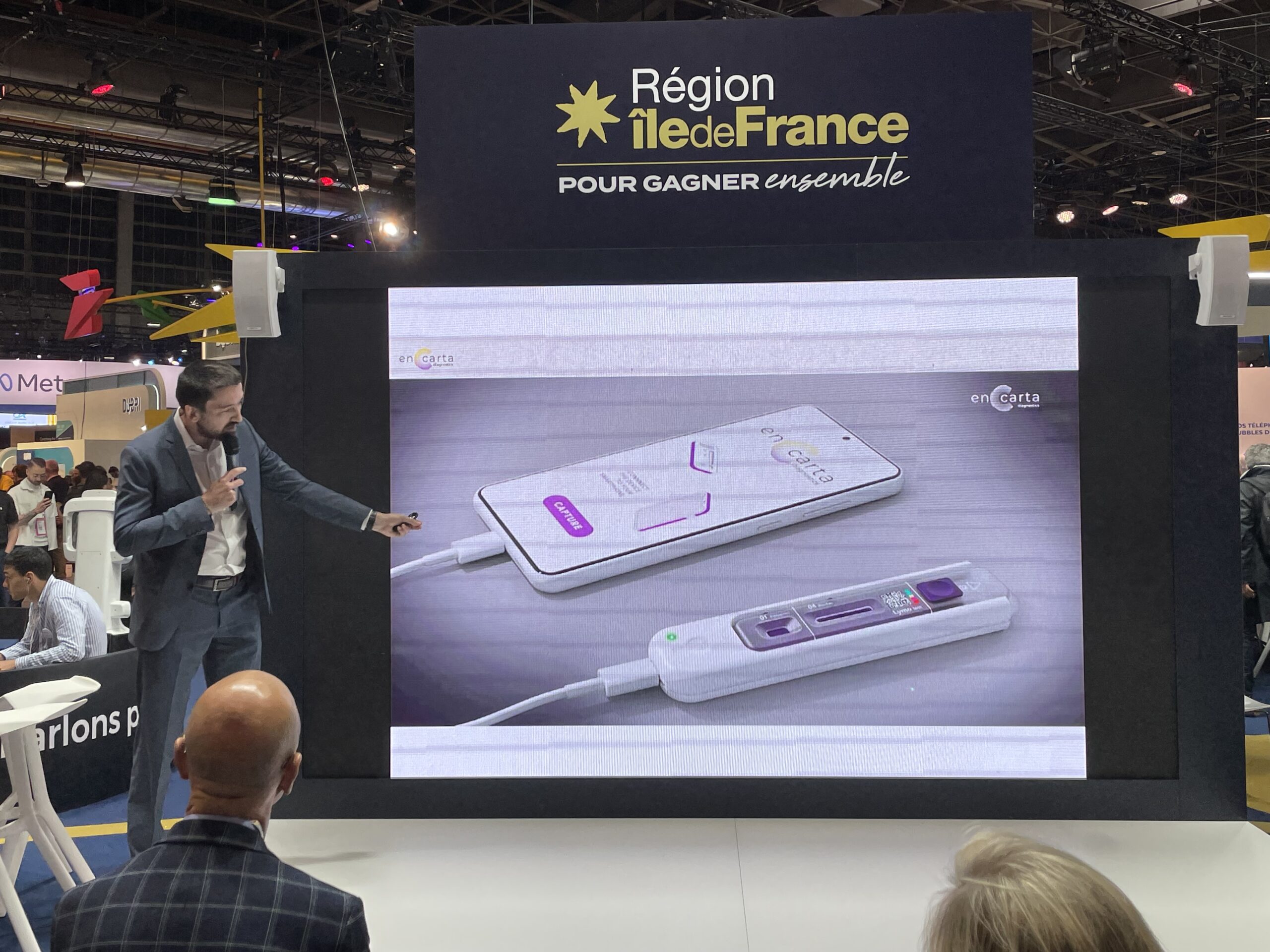
At En Carta Diagnostics, Guillaume Horréard presented a reprogrammable prototype capable of detecting any DNA or RNA sequence of interest. It is based on technology derived from synthetic biology at Harvard. This startup, originally from Canada, has now settled in Paris. They offer the possibility of molecular diagnostics with ready-to-use tests for DNA or RNA targets of different pathogens.
Generare Bioscience (Guillaume Vandenesch) is a biotechnology startup revitalizing the field of natural product discovery through DNA technologies and data-driven approaches. Natural products derived from microbes have provided over 500 drugs for oncology, immunosuppression, and infectious diseases. Generare enables the reintroduction of key natural drug products into clinical pipelines (~500 new genetic leads) for small molecules with therapeutic potential.
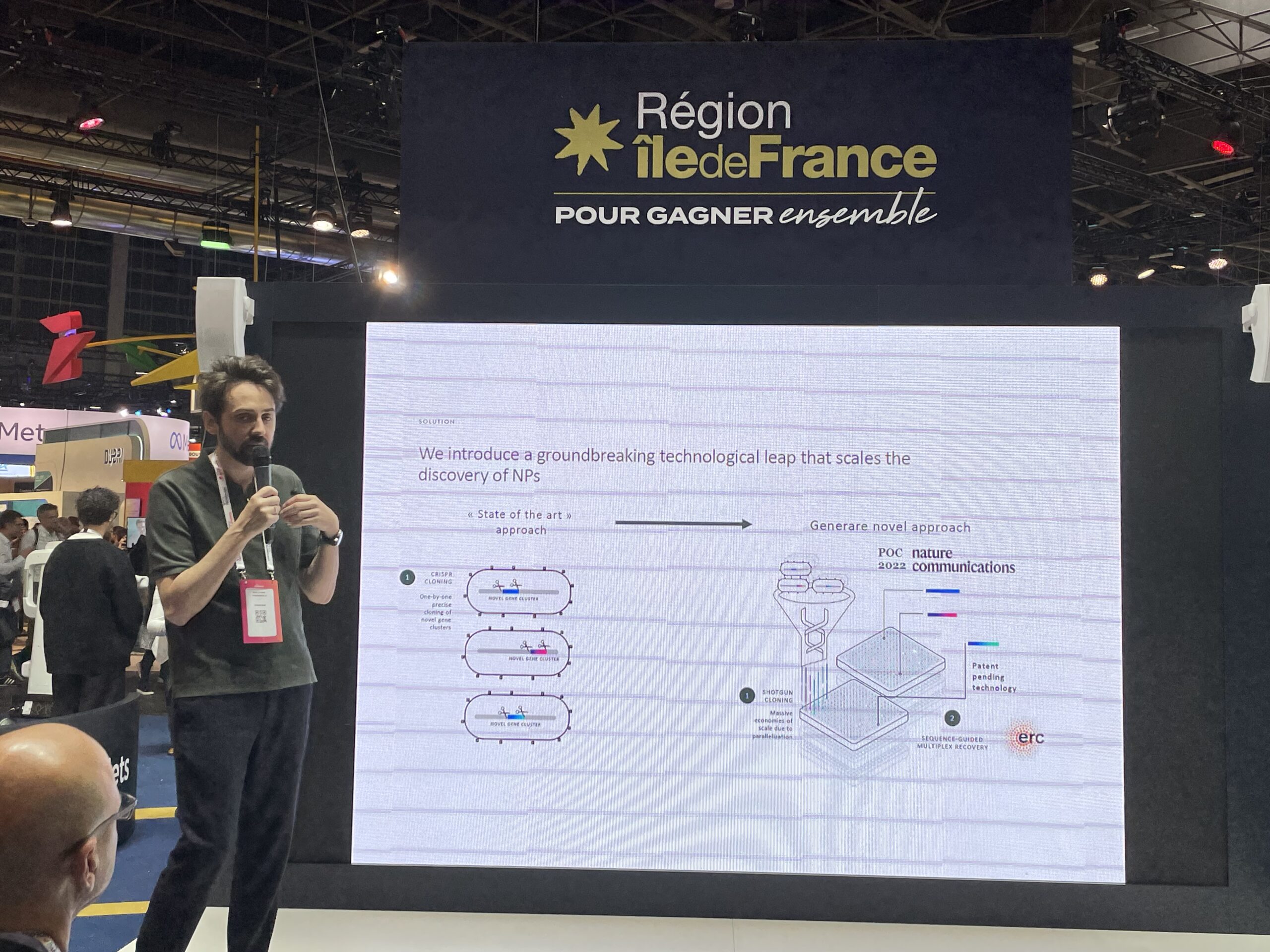
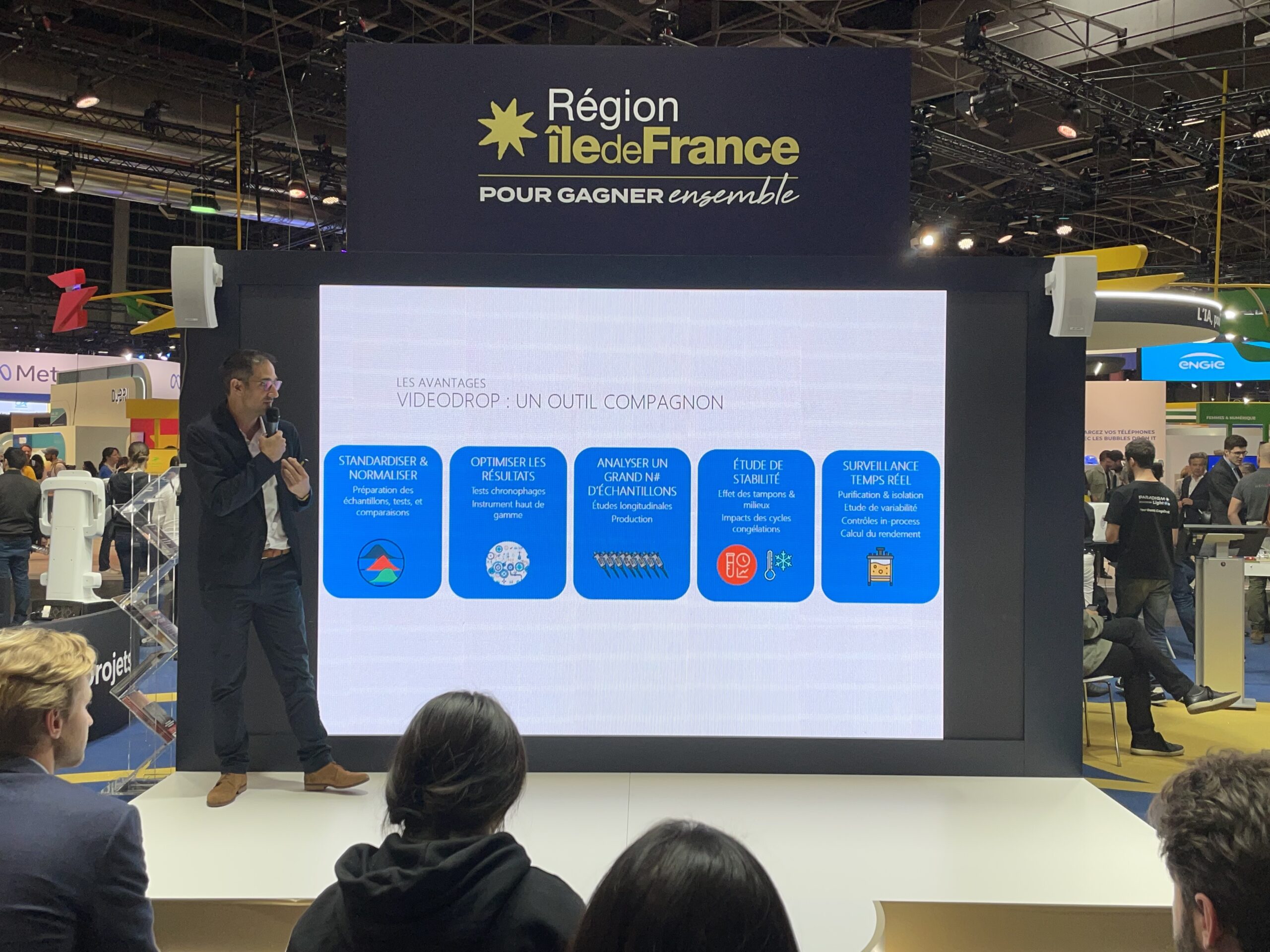
For MYRIADE, Philippe GARABEDIAN presented the VIDEODROP, an innovative French technology for imaging and quality control at the nanometric scale, which is already commercialized in France and Japan.
The Videodrop allows for the simple measurement of the size and concentration of biological nanoparticles between 80nm and 500nm in less than a minute with a single drop, without calibration, and without labeling.
The various possible applications were presented on viral vectors (Lentiviral), extracellular vesicles, phages, or their mRNA-LNP.
Thanks to VIDEODROP, it is possible to perform in-process controls during production and purification in a very reproducible manner.
Consult our data protection policy
Address:
DIM BioConvS
Faculté des Sciences - Université Paris Cité
5 rue Thomas Mann 75013 Paris
